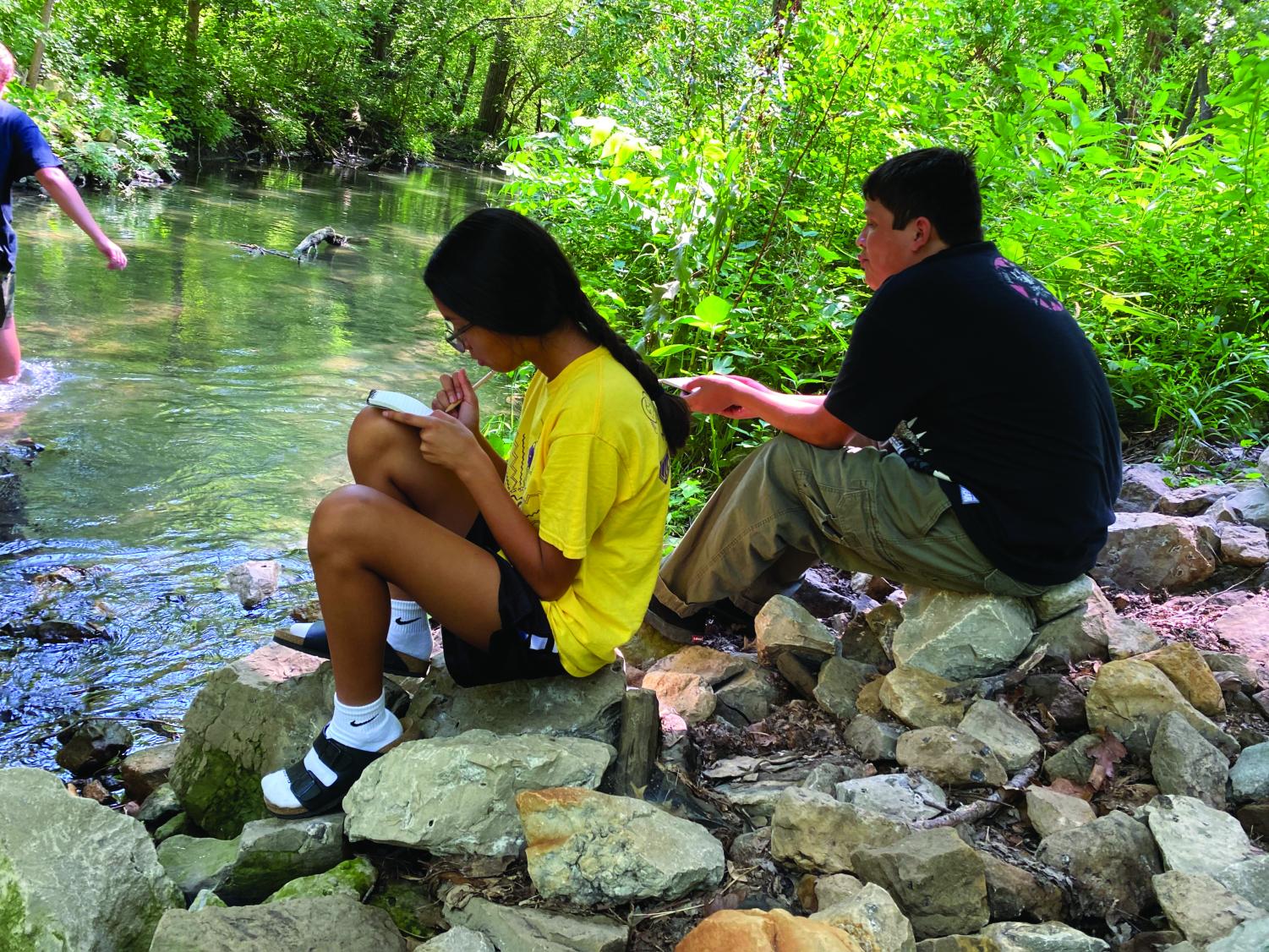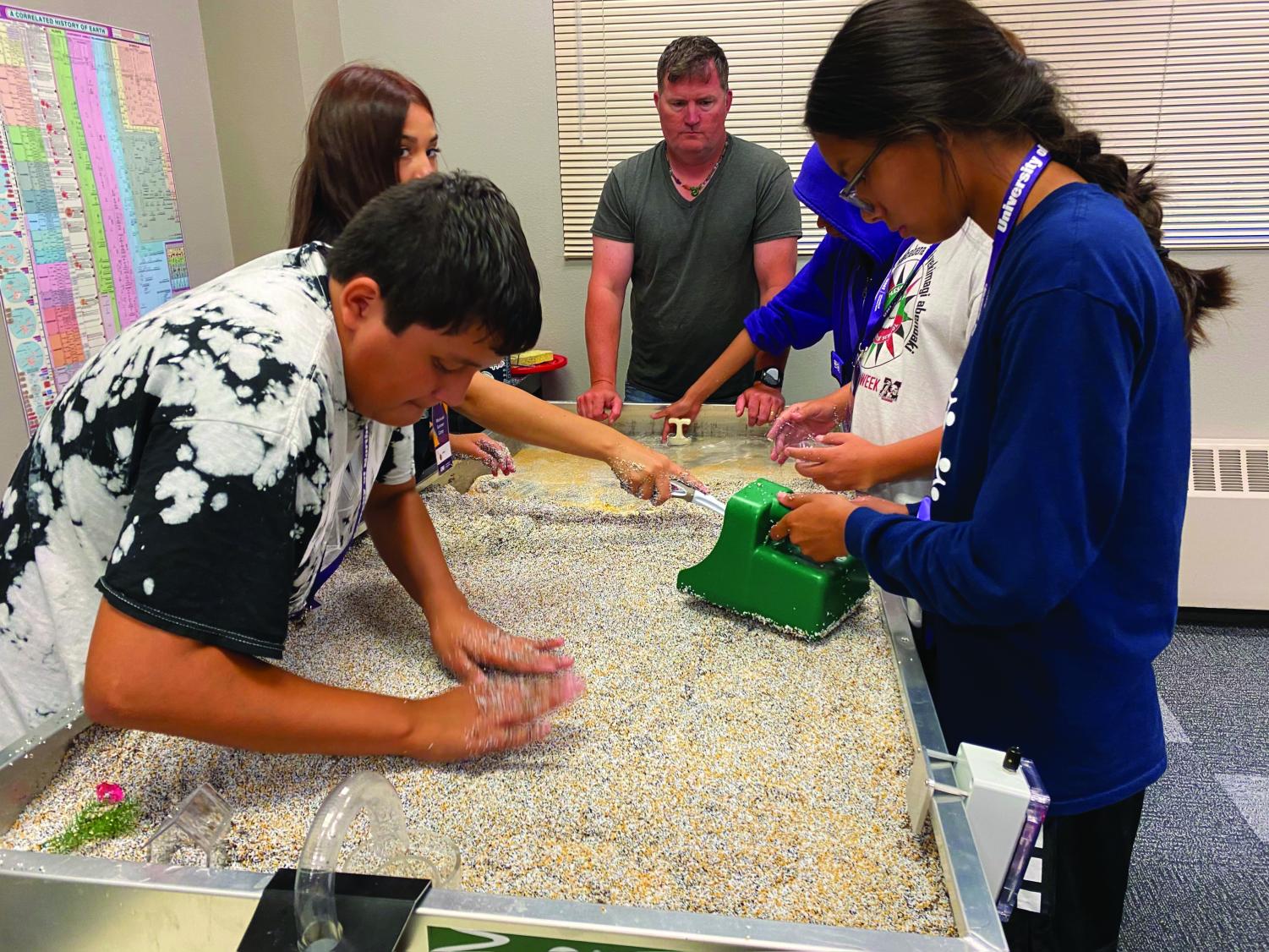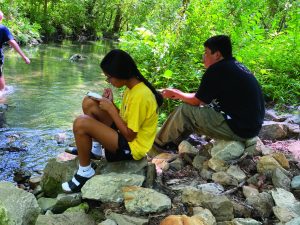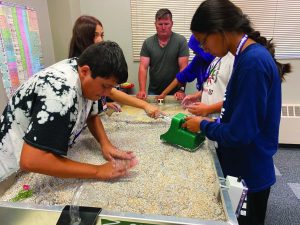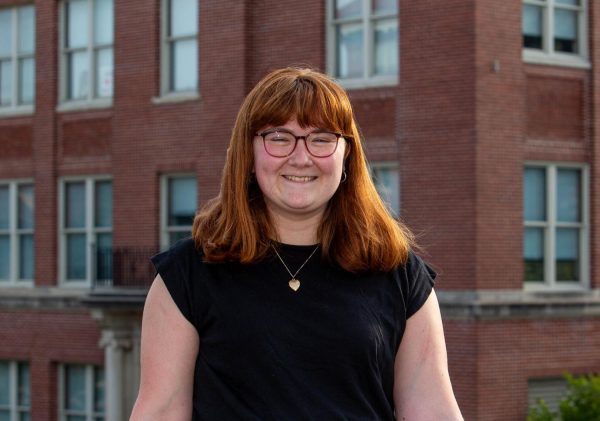UNI to host Meskwaki Summer Camp for second consecutive year
Mar 8, 2023
While the majority of UNI’s student population will be absent from campus this summer, a group of UNI staff and students are currently preparing to welcome a different audience this July.
This July 17-21, UNI will be hosting its Meskwaki Summer Camp for the second consecutive year. This program is aimed toward Meskwaki students entering grades 7-10 and focuses on college and career readiness.
Marcy Seavey is the STEM coordinator at UNI and serves on the planning committee for the program.
“A lot of what [the students] get to do while they’re here is explore not just what might they do, but how might they prepare themselves to have the future that they want,” she said.
“We give them lots of opportunities to explore who they are, what their interests are, to let them dive deep into one specific thing and to have experiences with their peers on campus to make campus less of a mystery space,” Seavey said. “After you’ve spent a week living in the dorms, going to the dining center and walking across campus between sessions, then it can really feel like a place that you know very well.”
The camp is structured so students will spend their mornings in large group sessions about college and career readiness led by UNI staff members. After lunch in one of the dining halls, the students break up into smaller groups for more specialized learning sessions.
This summer, the camp will be offering one session focused on environmental science and food sovereignty, which will allow students to learn more about fishing, farming, soil health and other environmental topics that affect their own communities.
The second confirmed session for this summer will focus on entrepreneurship. Students will learn about getting to know their customer base and use UNI’s podcast creation resources to learn how to promote a product amongst other activities.
The camp plans to have one more session to offer students, but is still in the process of finalizing what it will consist of. They are currently accepting proposals from faculty members.
While 2023 marks just the second consecutive year for this program, it is not the first time UNI and the Meskwaki community have collaborated. From 2014 to 2017, a similar program geared toward middle school students was run out of the College of Education, but it was discontinued. The idea for summer programming was rekindled just a few years ago.
“A couple of years ago, Meskwaki leadership and the university president started meeting together, and one of the things they talked a lot about was, what are things that the university and Meskwaki can do together?” Seavey said.
“There weren’t really a whole lot of people who had been involved with [the program] in the past still on campus,” she said. “So we met with a couple of members of the Meskwaki Higher Education Program and talked about what this camp should be, and then we formed a planning team to design it and to move forward with coordinating. That planning team is both people from campus and from the Meskwaki Higher Education Program.”
As listed on their Facebook page, the Meskwaki Higher Education Program is an organization in Tama, Iowa, that believes in “assisting enrolled Meskwaki tribal members and their descendents in pursuing post-secondary education.”
A key aspect of the Meskwaki Summer Camp is how personalized the experience can be for the students. In 2022, the program had 22 students attend, meaning that the afternoon learning sessions contained groups of six to ten students.
The small group sizes also allowed meaningful connections to be made between students and staff.
Jesús Lizárraga Estrada is one of the co-directors of the camp for his second year in a row, and spent the entire week last year working closely alongside the students in attendance.
“To me it was a very empowering experience for all involved. I think that to us, we saw growth in that initially when [the students] came in, they weren’t speaking to us much, but by day five, we saw them become more outgoing, not only with us, but with others in their group,” he said.
Janine Baeza, the other co-director of the camp, was able to connect with the students last summer based on her experiences as a first generation college student. “To me, I could only become a doctor or a teacher if I went to college, and then I came to college and I realized that there’s so many other majors and options. I felt overwhelmed by my choices. So that’s one of the big goals of the camp, early exposure to all of the different types of careers you can have if you seek a college degree,” she said.
The students are also accompanied by student counselors to lead them throughout the day, who are current UNI students also from the Meskwaki community. As Lizárraga Estrada said, this type of representation can have a significant impact on prospective students.
“For a lot of students, it may have been their first time on a college campus and seeing a college student who looks like them, who is succeeding in a college campus, and to hear their advice. I think that’s very powerful,” he said. “Many times we don’t have that opportunity to see people who look like us on college campuses, so I think the impact happened beyond the sessions and in that relationship between camp counselors and the participants too.”
Baeza continued, “I think that a lot of the time, the university will make statements on diversity, equity and inclusion work, like how we really want to work well with students of color and support students of color, and sometimes it feels like that doesn’t come to fruition and action.”
“This was one of those times where truly we’re trying to build a relationship with the Meskwaki Nation, and this camp was a part of that,” she said. “This felt like a good step forward in that, and I think that it definitely helped us grow the communities closer together.”
UNI faculty interested in submitting a proposal for the final afternoon session option can contact Marcy Seavey at [email protected].

